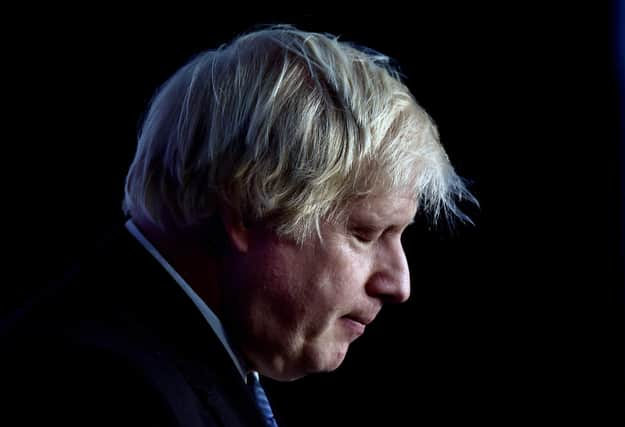Universal Credit cut hits poorest as Boris Johnson echoes Jim Callaghan's 'Crisis? What crisis?' line – Scotsman comment


While – like Jim Callaghan during the 1979 Winter of Discontent – Boris Johnson didn’t actually use those words, his attempts at bluster over fuel shortages, supply chain problems, the looming incineration of vast numbers of pigs because of a lack of butchers, and the prospect of thin gruel for the nation at Christmas may strike some as bordering on similar complacency.
Labour’s Anneliese Dodds was quick to launch the obvious attack, saying the Prime Minister was “so out of touch that he can't see a crisis when it's staring him in the face”.
Advertisement
Hide AdAdvertisement
Hide AdBut today, as the £20-a-week uplift to Universal Credit introduced in response to Covid is removed, many of Scotland’s poorest people will be plunged into a crisis that is impossible to miss. When you are counting the pennies, £20 is a lot of money to lose every week.
Furthermore, in July, there were some 480,000 people on Universal Credit in Scotland, so this cut will not only be felt by the people receiving the money but also the shops and businesses where they spent it.
In response to calls to retain the uplift from across the political spectrum – including Conservatives like former Work and Pensions Secretary Iain Duncan Smith – Johnson argued that the taxpayer should not “take more money in tax to subsidise low pay through the welfare system”.
And, on that point, he is right. An unintended consequence of the benefits system is that it enables companies to pay poverty wages, knowing they will be topped up by the state.
If this were to continue in a downward spiral, a smaller and smaller group of better-off tax-payers would find themselves funding what could be described as ‘wage subsidies’ for a growing group of poor. That way lies economic ruin.
And, again, Johnson is right that instead of going down this path the UK should build a “high-skill, high-wage” economy. However, this fine ambition will do nothing for people struggling in the here and now.
In an economic crisis, it is always the poorest who suffer the most. Rather than making their lives substantially harder, a compassionate government would find other ways to balance the books and offer more tangible solace than mirage-like visions of a better world.
A message from the Editor:
Thank you for reading this article. We're more reliant on your support than ever as the shift in consumer habits brought about by coronavirus impacts our advertisers.
If you haven't already, please consider supporting our trusted, fact-checked journalism by taking out a digital subscription.
Comments
Want to join the conversation? Please or to comment on this article.
